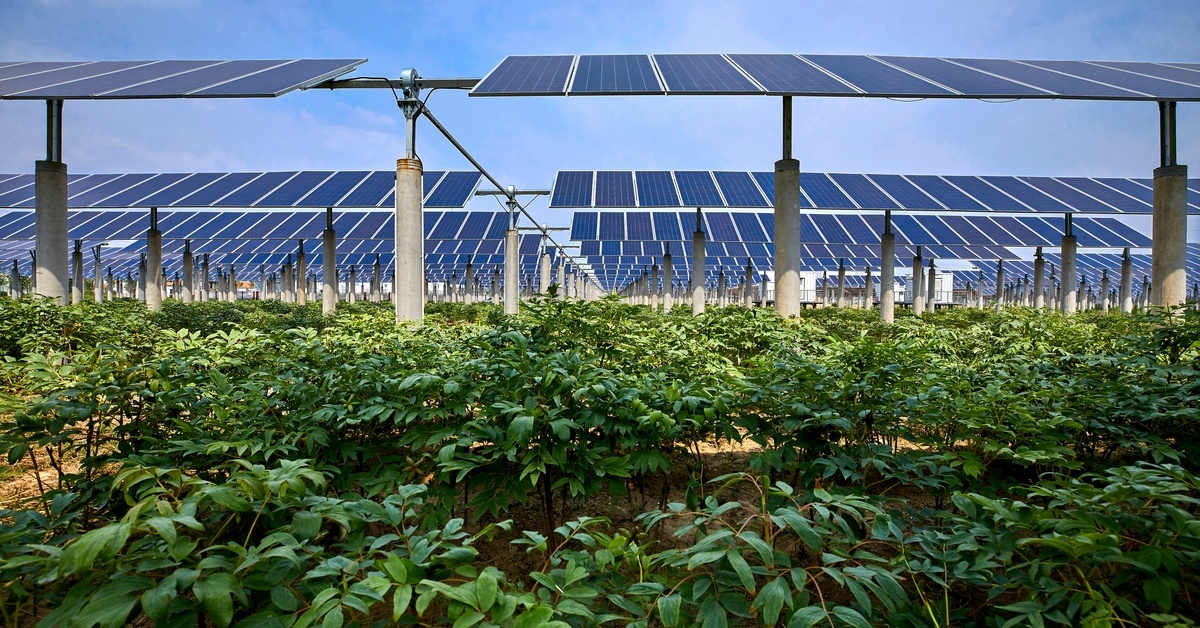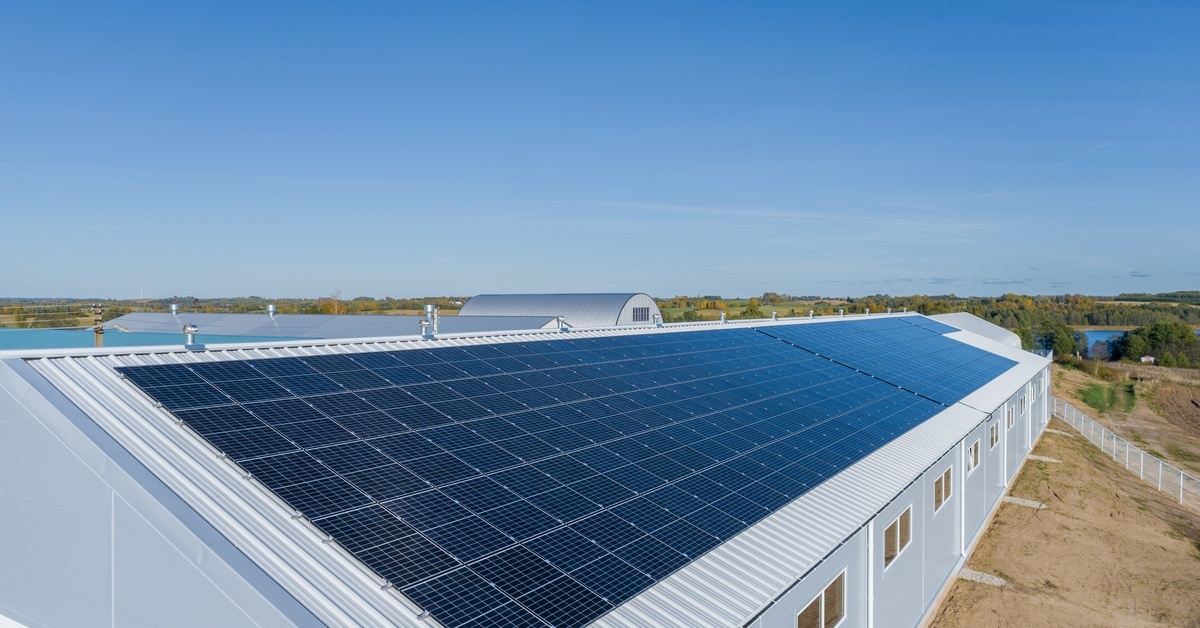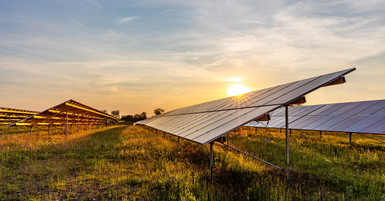Apr 8th 2025
The Benefits of Solar Farms for the Environment and Economy
If you want to rely less on the local power grid, invest in a solar farm. Compared to other renewable energy projects, solar grids are cost-effective and can provide consistent energy for your business. Discover the benefits of solar farms for the environment and economy and how you can properly use a solar grid to your advantage.
Understanding Solar Farms
Many people think of solar farms as large-scale energy projects but don’t know exactly how they work. A solar farm is a grid of photovoltaic (PV) panels that absorb sunlight and convert it into electricity. These installations generally consist of thousands of solar panels spread across a significant area, often in rural or otherwise unused spaces.
They can range from small community solar farms for local businesses to utility-scale facilities powering entire regions. Business owners work with solar specialists to determine how large of a solar farm they’ll need and what area around their business works best for the installation. While they can expand across fields or fenced off areas, solar grids can also sit on the roof of company buildings.
How Solar Farms Work
The process of converting light into energy begins when sunlight hits the photovoltaic cells in the solar panels. This generates direct current (DC) electricity. An inverter then converts this energy into alternating current (AC), the type of power most businesses and homes use.
A well-managed solar farm continuously feeds clean, renewable energy into the grid or directly to businesses. This requires routine maintenance to preserve the structural integrity of the solar grids, such as removing debris from the panels and replacing any damaged parts in the system. When taken care of, solar farms benefit the environment and economy for both short- and long-term success.
Environmental Benefits of Solar Farms

The adoption of solar farms can have a revolutionary impact on the environment. Businesses choosing to install solar power contribute to their own sustainability goals and to a broader global shift toward cleaner energy.
Reduction of Greenhouse Gas Emissions
Solar farms drastically help reduce the carbon footprint of businesses. By generating renewable energy, they eliminate reliance on fossil fuels, which are major contributors to greenhouse gas emissions. Transitioning to solar power also cuts down on CO2 output.
Preservation of Natural Resources
Unlike fossil-fuel-powered energy plants, solar farms don’t require extraction or burning of finite natural resources such as coal, oil, or gas. By leaving more of these resources available in the local area, your company will support the preservation of valuable treasures that future generations will need.
Protection of Wildlife Habitats
Solar farms typically utilize open or pre-cleared land that avoids disrupting important wildlife habitats. By prioritizing carefully selected areas, solar energy developers prevent large-scale deforestation or destruction of ecosystems and protect the biodiversity of local flora and fauna.
Additionally, solar energy systems operate without substantial air or noise pollution. This allows the surrounding wildlife to thrive without contaminants in their environment.
Improvement of Soil and Land Quality
Solar installations often incorporate practices such as planting native vegetation or building pollinator-friendly habitats beneath and around solar panels. These efforts help reduce soil erosion, improve land fertility, and restore degraded areas over time. You can rejuvenate the land around your business by implementing these resources during your solar installation.
Economic Advantages for Business Owners
While many businesses stray away from solar due to their initial investment cost, their economic benefits pay off over time. A solar grid installation can be a cost-effective energy solution for your company.
Reduced Operational Costs
After installation, solar farms produce energy without relying on the local energy grid. Businesses leveraging this type of sustainable energy lower their operational costs by reducing the need to pay fluctuating grid electricity prices. Over time, these cost savings create a solid return on investment.
Potential for Additional Revenue
Many regions offer incentives for businesses that generate renewable energy. For instance, selling excess electricity back to the grid through feed-in tariff schemes creates an additional revenue stream.
Solar farms also increase property value, further strengthening their financial appeal. For a long-term investment, solar grids are sought after renovations that will interest buyers if you choose to locate your business.
Long-Term Cost Stability
Unlike traditional energy sources, solar farms provide long-term price stability in energy production. Many fossil-fuel-based energy sources can be unpredictable, as the cost of production may rise due to demand. By switching to solar, this predictable cost structure allows for better financial planning and minimizes risks associated with fluctuating energy expenses.
Enhanced Brand Image

Aside from the environmental and economic benefits, solar energy systems are a great way to boost your business’ reputation with clients. Modern consumers increasingly prioritize environmentally responsible brands. Solar farms align with socially conscious values, so use these installations to your advantage.
Operating a solar farm signals a strong commitment to sustainability, and businesses that actively reduce their environmental impact resonate with eco-conscious customers.
Meeting Regulatory Standards
In many areas, state regulations are introducing stricter environmental policies. Incorporating solar farms helps businesses stay ahead of regulatory changes and avoid penalties in the future.
Fewer Power Outages
Solar farms increase energy reliability, particularly in areas prone to outages. By having an on-site renewable energy source, businesses can complete tasks uninterrupted, even during grid failures. Reduce downtime for your business by becoming energy independent with a reliable solar energy system.
Long-Term Sustainability From Solar Investments
By investing in solar farms, businesses participate in global efforts to reach carbon-neutral targets. This builds long-term resilience in the face of regulatory and environmental pressures.
Being a pioneer in sustainability often influences competitors and partners to follow suit. Solar farms inspire broader adoption of renewable energy across industries, so take the first step toward a green initiative to stand out.
If you own or plan to install a solar farm for your company, consider implementing electrical solar placards like those offered at Get Solar Labels. These resources provide useful information regarding hazardous areas and troubleshooting instructions to make repairs easier to conduct. Boost the longevity of your system, and continue to reap the benefits of solar by contacting our team today.

